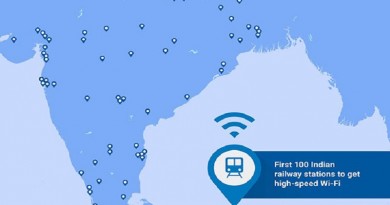#HealthNews: Healthcare supply chain start-ups in Africa abound, and want to support the COVID-19 response, report reveals
Healthcare consulting firm, Salient Advisory, has launched a health care report calling on donor agencies, governments and impact investors to accelerate the impact and scale of African health-tech innovators working in supply chain. The report, funded by the Bill and Melinda Gates Foundation and titled, “Innovations in Health Product Distribution in Sub-Saharan Africa,” sets out a series of actionable recommendations for global health actors.
As a result of COVID-19, innovative approaches to distributing medicines are growing. The report engaged with 61 of these health-tech innovators, including Mymedicines.com, Shelf Life, RxAll, MYDAWA, Pronov. Data can now reveal a consistent expansion in the ecosystem of tech-enabled supply chain companies within sub-Saharan Africa, primarily driven by companies in Ghana, Nigeria and Kenya.
The findings show a more than 100% increase in technology-enabled business models since 2018, as these companies work to change how healthcare products are distributed. Of the companies surveyed, 53% reported hoping to support the distribution of COVID-19 vaccines by providing trusted information, track-and-trace services, supporting last-mile delivery and aiding in vaccine administration.
Propelled by COVID-19, businesses that pair telemedicine with product delivery are the most common offerings among new entrants. For the first time, the number of innovators that report operating in both urban and rural areas [49%] surpassed those operating exclusively in urban areas [48%], driving scale, impact and profitability.
As businesses continue to respond to COVID-19, the report calls for more to be done to support, nurture, fund and provide infrastructure access to innovators across Africa who can have a positive and impactful effect on the health care systems.
Building on these challenges, Salient’s key recommendations for global health actors therefore include:
- Reshaping investment ecosystems to ensure more equitable funding and professionalized support is accessible to high-potential African founders, including female founders and innovators in francophone Africa.
- Catalyzing partnerships between the innovators, and NGOs, industry and governments to enable the distribution of publicly subsidized products through locally-grown, tech-driven platforms, especially in rural areas.
- Increasing access to affordable working capital and mechanisms to enable innovators to offer low-cost onward lending to their customers.
- Reviewing, developing and harmonizing regulations for telemedicine providers and innovators offering digitally enabled direct-to-consumer distribution of medicines.
Speaking on the launch of the report, Remi Adeseun, FPSN, Director at Salient, commented:
“In our conversations with African innovators, it is clear the global pandemic has stimulated digital health care startups to develop innovative and commercially viable solutions that will transform health product distribution for consumers and providers alike. While technology-driven innovations continue to grow, our report has highlighted many constraints faced by innovators across the continent, including lack of access to capital and un-harmonized regulatory environments. Salient is now calling on all global health players, but in particular, those who operate across Africa, to move quickly to engage high-potential innovations, to build health care supply chains of the future”.
Cheikh Oumar Seydi, Director, Africa, at the Bill and Melinda Gates Foundation, also commented:
“The COVID-19 pandemic has impacted everyone in Africa, and in response governments, the private sector, donors, and health workers have stepped up. This new survey shows that sub-Saharan African start-ups are keen to do more to support the distribution of essential medicines and vaccines and are already investing in the technology to do so.
“As we work to deliver a fair and equitable approach, we must leverage partnerships and collaborate sector to sector, locally and internationally, to strengthen health care systems and achieve universal health coverage.”
To download the full PDF report, please click here.
About Salient Advisory
Launched in 2020 with a globally distributed team in Kenya, Nigeria and Canada, Salient Advisory help changemakers enact transformative approaches to health. The company conducts analysis and supports partnerships to use technology and innovations, adapt policy and financing, and elevate unheard voices to change global conversations and transform access to care.
Report Methodology
- Data was collected and analyzed over 6 months, between November 2020 and April 2021.
- 155 companies were identified through landscaping (N=156).
- 47 companies were eliminated during the pre-screening exercise as some companies were no longer active, not operational yet or out of scope of distribution of essential medicines (N=109).
- Through structured key informant interviews with company leadership, data on business model, processes, operations, financing needs, scale of operations, customer profiles, business model pivots and more was collected. The interviews were recorded, answers transcribed and the notes from each interview returned to the informant for corrections. 48 companies were excluded due to lack of response to request for interview or lack of participation in data collection (N=61).
- Some companies may have been missed during the initial landscaping while some declined to provide responses to certain questions during the interviewing process. It is important to state that data collected has not been independently verified and company offerings, scope and scale may change quite rapidly. As such, the relevance of the insights and findings in this report may shift over time.




